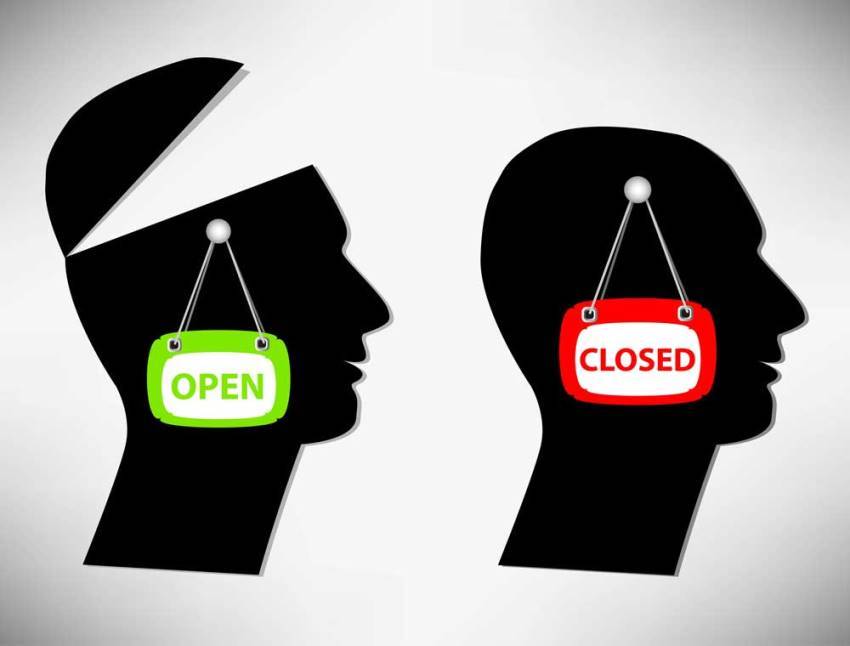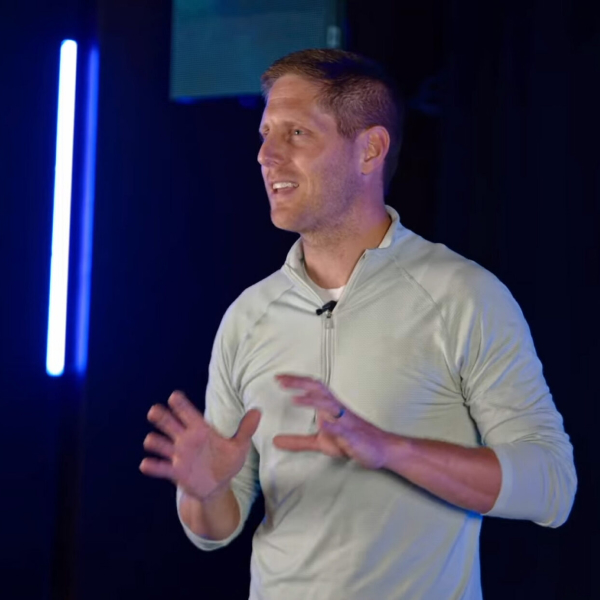Do you have a closed mindset or an open mindset?
To quote Farnam Street, “Before you smugly slap an open-minded sticker on your [forehead], consider this: close-minded people could never consider that they could actually be closed-minded. In fact, their perceived open-mindedness is what’s so dangerous.”
The reality is that close-minded people are likely closed to the idea that they are close-minded.
If you were to have asked me 10 years ago if I had an open mindset, I would have said, “definitely, yes!” But, I look back on my former self, and now see that I was incredibly close-minded.
Regardless of your mindset, it is likely that you can think of people that are very close-minded and others that are very open-minded, and the feeling that you have toward each of these people is likely very different.
Additionally, what we may not fully realize is the huge impact our closed or open mindset plays in our lives. This will become apparent as I compare and contrast the differences between those who have a closed mindset and those that have an open mindset. Use this table as a gauge to determine where you stand on the continuum between strongly close-minded and strongly open-minded. Also, use this table to identify areas where you can improve in your open-mindedness.

To summarize the differences, here are some that are key:
- Those with an open mindset seek after truth, even if it means changing their mind. Those with a closed mindset seek to be right.
- Those with an open mindset have a genuine fear of missing important information, and are thus hungry to learn and seek others’ perspectives. Those with a closed mindset have no desire to learn or seek others’ perspectives
- Those with an open mindset recognize that while they may know a lot, they are open to the idea that there is much they do not know. Those with a closed mindset presume that they know enough.
- Those with an open mindset are able to be objective about themselves and their knowledge and admit what they do not know. Those with a closed mindset are emotionally attached to their knowledge and have a hard time disconnecting from themselves, and thus become defensive when challenged or given critical feedback.
Ultimately, if I were to use one word to describe the difference between those with open and closed mindsets, I would use: humility. I define humility as one’s willingness to sincerely hear and understand others’ ideas and perspectives, regardless of who they are.
On the topic, in his landmark commencement speech, Clayton Christensen said the following:
“I asked all the students to describe the most humble person they knew. One characteristic of these humble people stood out: They had a high level of self-esteem. They knew who they were, and they felt good about who they were. We also decided that humility was defined not by self-deprecating behavior or attitudes but by the esteem with which you regard others. Good behavior flows naturally from that kind of humility… if your attitude is that only smarter people have something to teach you, your learning opportunities will be very limited. But if you have a humble eagerness to learn something from everybody, your learning opportunities will be unlimited. Generally, you can be humble only if you feel really good about yourself—and you want to help those around you feel really good about themselves, too. When we see people acting in an abusive, arrogant, or demeaning manner toward others, their behavior almost always is a symptom of their lack of self-esteem. They need to put someone else down to feel good about themselves.”
The reality is: The success of our life, work, and leadership is largely determined by the quality and accuracy of our decisions. And, the more we are open-minded and the more humble we are, the better we will be at making decisions.

In all, I hope this post helps you awaken more to your mindset. The more we awaken to our mindsets, the more we are empowered to change and improve them.
If you would like even greater clarity on whether you have a closed mindset or an open mindset, here is a free personal mindset assessment:
As your read through the table above, was there an aspect of open/close-mindedness that stood out to you as being the most important or impactful?











3 Responses